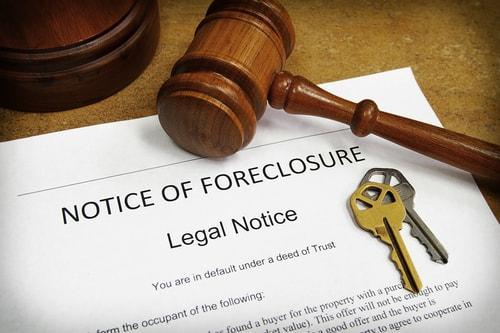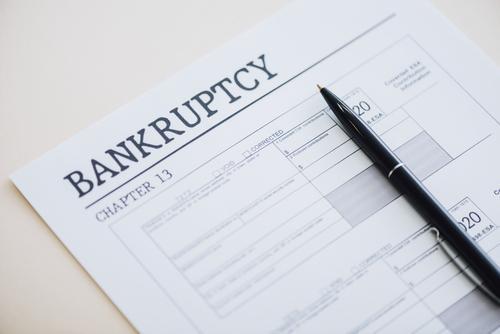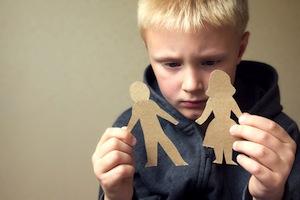Recent Blog Posts
How Does the Latest Stimulus Relief Bill Affect Foreclosures?
 The COVID-19 pandemic that began last year caused not only a health crisis but an economic crisis as well. Falling behind on mortgage payments can happen, especially if one’s hours are reduced or he lost his job completely. Missing housing payments can lead to financial hardship and foreclosure.
The COVID-19 pandemic that began last year caused not only a health crisis but an economic crisis as well. Falling behind on mortgage payments can happen, especially if one’s hours are reduced or he lost his job completely. Missing housing payments can lead to financial hardship and foreclosure.
The U.S. government extended the moratorium on foreclosures through June 30, 2021. The policy also extends the mortgage forbearance window until the end of June and provides up to six months of additional mortgage payment relief for the 2.7 million Americans who are already benefiting from it. There are additional forms of assistance that may help avoid having to go through a foreclosure on your home.
American Rescue Plan
Any reduction or loss in income can make it difficult for many people to come up with the money for essentials, such as food, utilities, and mortgage payments. It is important to note that not everyone is covered under the current forbearance policy. The program only applies to mortgages that are government-backed, which makes up approximately 70 percent of existing single-family home mortgages. Since private-market mortgages are not eligible for the new relief, there may be additional extension of the forbearance and stimulus payments.
How Can Chapter 13 Bankruptcy Help Me Avoid Foreclosure?
 Anyone can encounter unexpected financial problems that can put him and his family in a difficult position. This has been especially true during the COVID-19 pandemic, which has caused millions of people throughout the United States to lose their jobs or suffer health-related setbacks that have affected their income or resulted in large debts. A family that has struggled to pay ongoing expenses may be concerned that it may face foreclosure if they default on their mortgage. Fortunately, homeowners may be able to receive relief through Chapter 13 bankruptcy. By filing for bankruptcy, homeowners may eliminate certain types of debts and avoid losing their homes.
Anyone can encounter unexpected financial problems that can put him and his family in a difficult position. This has been especially true during the COVID-19 pandemic, which has caused millions of people throughout the United States to lose their jobs or suffer health-related setbacks that have affected their income or resulted in large debts. A family that has struggled to pay ongoing expenses may be concerned that it may face foreclosure if they default on their mortgage. Fortunately, homeowners may be able to receive relief through Chapter 13 bankruptcy. By filing for bankruptcy, homeowners may eliminate certain types of debts and avoid losing their homes.
Addressing a Mortgage During a Chapter 13 Bankruptcy
First, filing for bankruptcy will place an automatic stay on any collections by creditors. This will put a halt to foreclosure proceedings that have been initiated by a lender, giving a debtor the necessary breathing room to determine his options. He can then determine what types of debts will be included in his bankruptcy and create arrangements that will allow them to maintain ownership of his home.
Residential Custody: Your Child’s Right to Choose
 Determining child custody in a divorce can be a lengthy and emotionally taxing process. In Illinois, the judge will consider many factors, including the testimonies of each parent, as well as the physical and mental health of the child and parents, when awarding custody.
Determining child custody in a divorce can be a lengthy and emotionally taxing process. In Illinois, the judge will consider many factors, including the testimonies of each parent, as well as the physical and mental health of the child and parents, when awarding custody.
However, your children will not be voiceless throughout this process. As outlined in the Illinois Marriage and Dissolution of Marriage Act, the judge may take into consideration the child’s wishes.
Children ages 14 or older may choose which parent to live with, but a judge can overrule this decision if he or she decides the child’s choice is not in their best interest. There are a few questions that judges may consider when adjudicating a case where a child has strong preferences toward a particular parent:
Reducing Costs During Your Divorce
 Divorce is one of the biggest financial transactions in a couple’s life. Knowing this, many attempt to take shortcuts that end up costing them more in the end. Avoid this risk by examining how you can reduce cost, without compromising the outcome of your case, with help from the following information.
Divorce is one of the biggest financial transactions in a couple’s life. Knowing this, many attempt to take shortcuts that end up costing them more in the end. Avoid this risk by examining how you can reduce cost, without compromising the outcome of your case, with help from the following information.
http://www.ctvnews.ca/5things/tips-on-how-to-save-money-if-divorce-is-the-only-option-1.3329365
How to Estimate Child Support Payments in Illinois
 Splitting up a family is one of the most emotionally and mentally challenging aspects of a divorce. The process involves several life-changing decisions, such as choosing where the children will live and developing a child support arrangement.
Splitting up a family is one of the most emotionally and mentally challenging aspects of a divorce. The process involves several life-changing decisions, such as choosing where the children will live and developing a child support arrangement.
Estimating Child Support Payments in Illinois
Each child custody and support case is unique. Different families can vary in income level and number of children. As a result, general advice may be helpful; however, it might not directly apply to your situation.
Also, divorce laws differ from state to state. In Illinois, laws concerning child support aim to find a solution that serves a child's best interests, according to the Illinois General Assembly. Child support amounts scale with the number of children. The more children, the more a non-custodial parent will likely have to pay.
When is Chapter 13 Bankruptcy a Better Option than Chapter 7?
 Filing for bankruptcy—no matter which chapter you choose—can be a mentally exhausting process. For many Americans, though, bankruptcy offers an opportunity to regain financial independence and stop creditor actions.
Filing for bankruptcy—no matter which chapter you choose—can be a mentally exhausting process. For many Americans, though, bankruptcy offers an opportunity to regain financial independence and stop creditor actions.
In many cases, Chapter 13 bankruptcy is a smarter option than Chapter 7. For example, if you have fallen behind on business payments or your mortgage, Chapter 13 bankruptcy may allow you to maintain your property. Additionally, Chapter 13 bankruptcy may allow you to reinstate your original mortgage agreement if you can make the overdue payments within a specified period. In this way, Chapter 13 bankruptcy can put homeowners on the path to a debt-free life.
Generally speaking, people with valuable property that Illinois bankruptcy exemptions do not cover should consider filing for Chapter 13 bankruptcy. This chapter may also be ideal if your income is too high to be eligible for Chapter 7 bankruptcy.
Chapter 13 Bankruptcy: Is it a Smart Choice for Your Case?
 Each year, thousands of Americans file for bankruptcy as part of their efforts to gain financial control. The bankruptcy process can give debtors a fresh start while also teaching invaluable lessons related to financial management. In many cases, debtors must choose between filing for Chapter 13 and Chapter 7 bankruptcies. Therefore, understanding the breakdown of Chapter 13 bankruptcy can help you decide if it is a smart option for your particular case.
Each year, thousands of Americans file for bankruptcy as part of their efforts to gain financial control. The bankruptcy process can give debtors a fresh start while also teaching invaluable lessons related to financial management. In many cases, debtors must choose between filing for Chapter 13 and Chapter 7 bankruptcies. Therefore, understanding the breakdown of Chapter 13 bankruptcy can help you decide if it is a smart option for your particular case.
What You Need to Know about Chapter 13 Bankruptcy
Chapter 13 offers debtors the opportunity to organize debt into a structured payment plan. According to Uscourts.gov, Chapter 13 applicants must meet certain criteria in order to be eligible.
First, applicants must have a steady income that will allow them to make payments according to the agreed upon schedule. In fact, debtors with a high income may not be eligible for Chapter 7 bankruptcy.
4 Factors That Could Jeopardize Prenuptial Agreements
 Every couple fantasizes about a perfect life after marriage; however, reports indicate that nearly 44 percent of married couples in the United States divorce. For this reason, engaged couples may consider signing a prenuptial agreement to protect their finances in the event of divorce.
Every couple fantasizes about a perfect life after marriage; however, reports indicate that nearly 44 percent of married couples in the United States divorce. For this reason, engaged couples may consider signing a prenuptial agreement to protect their finances in the event of divorce.
Like many other matters in marital law, prenuptial agreements come with a long list of complex considerations. In some cases, a seemingly minor mistake may render the contract void.
Four Factors that May Render a Prenuptial Agreement Invalid
1. One spouse signed the prenuptial agreement under coercion or duress.
According to the Illinois General Assembly, in order for a prenup to be legal, both spouses must have signed the document without duress or coercion. If one spouse can demonstrate that any threats—verbal, physical, or otherwise—convinced him or her to sign the contract, the prenup may be void.
Your Illinois Divorce: Fault, No Fault, and Child Custody
 Divorce is one of the most stressful and mentally exhausting chapters in a person’s life. It comes with a long list of life-changing considerations, such as where each spouse will live, how to survive on a single income, and what the child custody arrangement will entail.
Divorce is one of the most stressful and mentally exhausting chapters in a person’s life. It comes with a long list of life-changing considerations, such as where each spouse will live, how to survive on a single income, and what the child custody arrangement will entail.
The legal side of divorce can be just as overwhelming as the personal challenges. This is especially true in contested divorces when couples cannot agree on asset division, child support, or other factors.
Fault vs. No-Fault Divorces
According to current Illinois law, a divorce will fall under one of two categories: “fault” or “no fault.” In no-fault divorces, there is not a fundamental issue that caused the divorce. As such, the marriage is ending due to “irreconcilable differences.”
Fault divorces, however, involve a clear reason for the separation. This may include adultery, physical or emotional abuse, or drug addiction. The cause of the divorce could affect the outcome as it relates to asset division, alimony, and child support. It is important to note, however, that all grounds for divorce, besides irreconcilable differences, will be eliminated January 1, 2016 due to the implementation of Senate Bill 57.
Will I Lose My House if I Declare Bankruptcy?
 Many people mistakenly assume that bankruptcy is financial suicide. However, the truth is that bankruptcy has helped millions of Americans start their path toward a debt-free life.
Many people mistakenly assume that bankruptcy is financial suicide. However, the truth is that bankruptcy has helped millions of Americans start their path toward a debt-free life.
There are several chapters of bankruptcy, with Chapters 7 and 13 being the most common. The eligibility criteria and consequences of filing each chapter vary, and one factor that sets them apart is the possibility of liquidating assets.
What Will Happen to My Property if I File for Bankruptcy?
According to Uscourst.gov, Chapter 7 bankruptcy involves the liquidation of assets to pay off creditors. As a result, filers may need to sell their home or other properties to pay debts.
Every case is unique, and not all Chapter 7 filers will have to sell their home. Also, there is a homestead exemption in Illinois bankruptcy cases which will allow you to preserve a portion of your home's equity. Depending on the details of your mortgage, the trustee may decide not to group your home with the liquidated assets.

